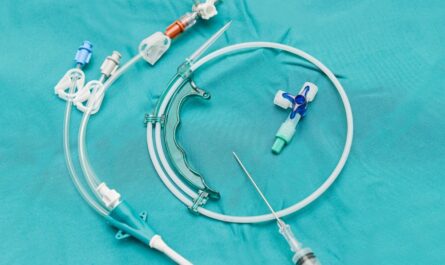
Why Do Period Cramps Happen?
Menstrual cramps, also known as period pains or dysmenorrhea, are common during your period. They occur when the muscles of the uterus contract to shed its lining. This contraction cause’s pain as nerves in and around the uterus are compressed or stretched. Period cramps usually start just before or at the beginning of bleeding and may last for the first few days of your period. The pain can range from mild to severe.
Natural Ways for Menstrual Cramps Treatment
Heating Pad or Hot Water Bottle
Applying gentle heat to your lower abdomen can help relax the uterine muscles and ease cramping. Using a heating pad or hot water bottle wrapped in a towel provides comforting warmth. Leave it on for 15-20 minutes at a time. The heat increases blood flow to the area and helps block pain signals.
Massage Abdominal Muscles
Gently massaging your lower abdomen with circular motions may help relax tense, cramped muscles. Focus on massaging the area just above your pubic bone where cramps tend to be strongest. Use light to moderate pressure and slow, rhythmic strokes. You can also gently knead and stretch the muscles. Try this for 10 minutes at a time.
Exercise Lightly
Going for a walk or doing some gentle stretching can help take your mind off cramps and increase blood circulation. Activities like yoga poses that involve bending and twisting are especially beneficial for loosening tight abdominal muscles. Low-impact exercises like walking in water are also good options on heavier flow days.
Take Warm Baths
Soaking in a warm bath for 20 minutes allows the heat from the water to penetrate deep into your abdominal muscles. You can also add 2-3 drops of lavender essential oil, which has calming properties. Warm water helps flush hormones from your system more quickly too.
Try an Over-the-Counter Pain Reliever
Many women find relief from mild to moderate cramps with over-the-counter nonsteroidal anti-inflammatory drugs (NSAIDs) like ibuprofen or naproxen sodium. These work by blocking prostaglandins, hormones that contribute to uterine contractions. Take as directed on the package for best results.
Cramps Still Hurting? Other Natural Menstrual Cramps Treatment Methods
Magnesium Supplement
Magnesium plays a role in muscle relaxation. Taking 250-500mg of magnesium glycinate or citrate daily beginning a few days before your period may help prevent cramps. Raspberry leaf tea is also a good plant-based source of magnesium.
Apply heating pad or hot compress
Ginger or Chamomile Tea
The anti-inflammatory properties in ginger and chamomile tea can offer soothing relief from menstrual cramps. Ginger tea made from fresh gingerroot may be most potent. Drink 1-2 cups warm when cramps start.
Yoga Poses for Cramps
Specific yoga poses aim to loosen contracted muscles and increase blood flow. Child’s pose, cat-cow, butterfly, and gentle twists like reclined spinal twist can all help relax the uterus and lower back. Hold each pose for 5 breaths.
Aromatherapy with Essential Oils
Massaging your lower abdomen with diluted essential oils such as lavender, clary sage, ginger or marjoram may ease period discomfort. These oils contain compounds that work similarly to pain medications and relax muscles. Only use oils labeled for topical/aromatic use.
Acupressure Points for Relief
Gently press and hold acupressure points associated with the uterus, ovaries and abdomen like SP6 on the lower leg and CV4 on the hands. This stimulates the release of endorphins to alleviate cramping. Acupressure mats or keys offer round-the-clock support too.
When to See a Doctor for Menstrual Cramps
For most women, period pain is manageable with over-the-counter medications and natural remedies. However, see your doctor if:
– Cramps are severe and interfere with daily activities.
– Pain lasts more than 3 days into your period.
– Symptoms are getting progressively worse over time.
– You also experience other PMS issues like mood changes, breast tenderness, or headaches.
– You suspect endometriosis or other underlying conditions.
A doctor can determine if prescription-strength medications, birth control, or other therapies may be needed to manage heavy bleeding and discomfort from severe menstrual cramps. With proper care, you can find relief so you’re not sidelined each month by your period.



